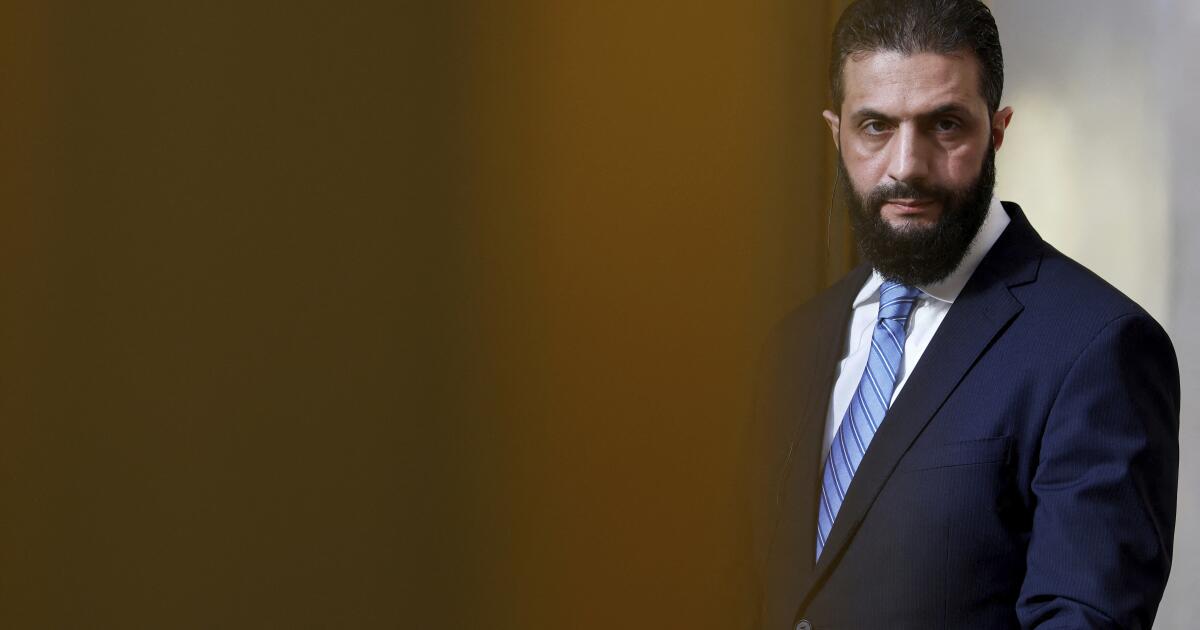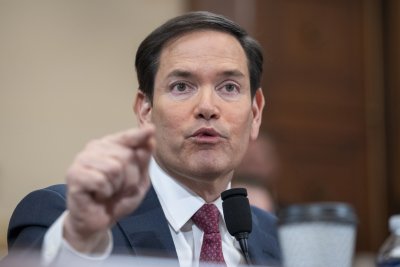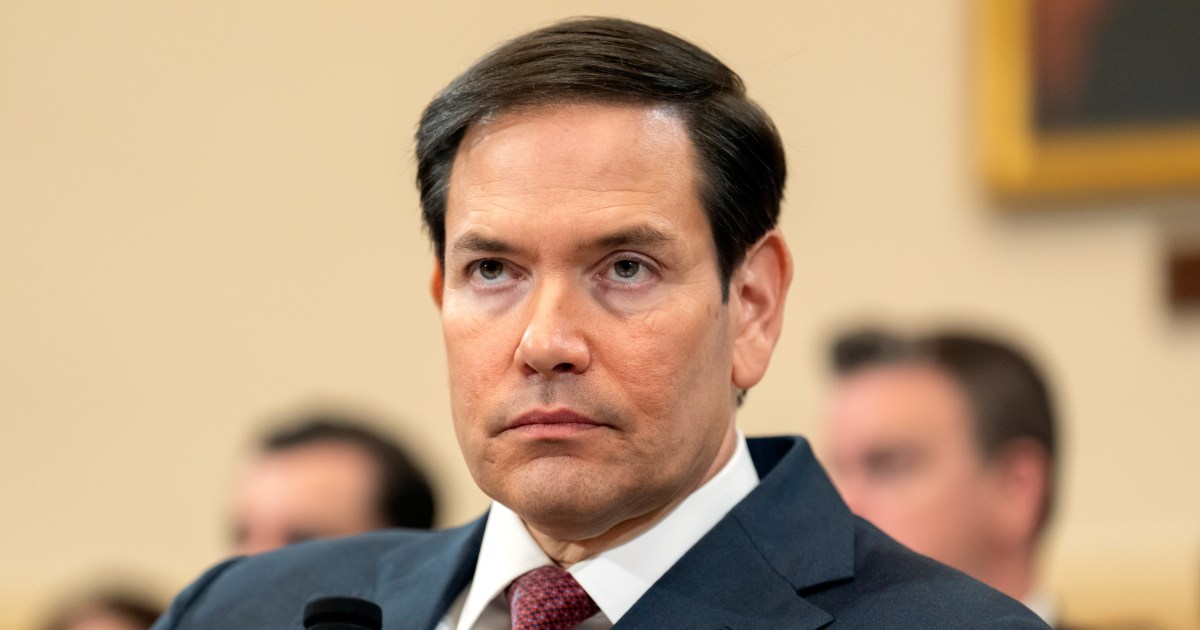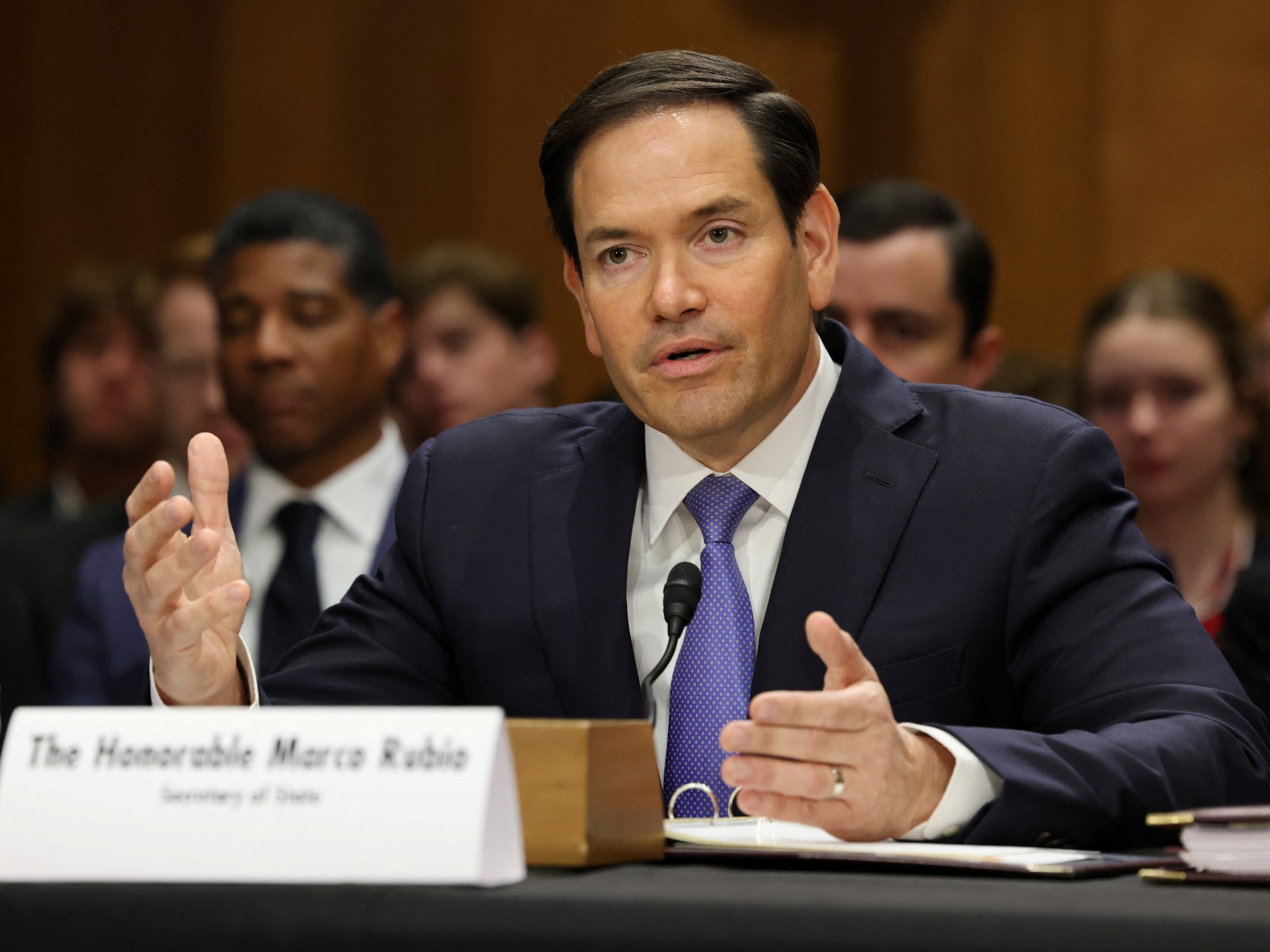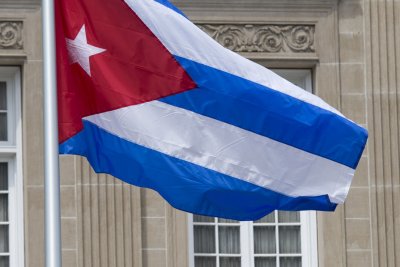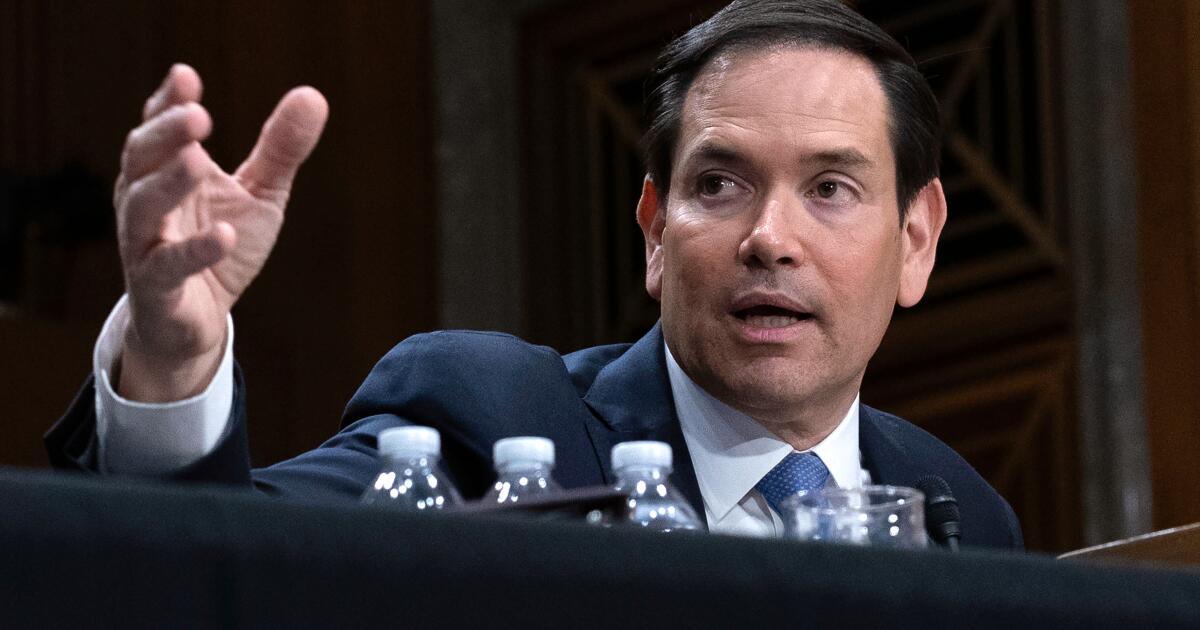Trump administration revokes terrorism designation of new Syrian leader’s group
WASHINGTON — The Trump administration is revoking the terrorism designation of a group led by Syria’s new president as part of a broader U.S. engagement with the transitional government since the ouster of former leader Bashar Assad late last year.
In a statement released on Monday, Secretary of State Marco Rubio said the move, which will take effect on Tuesday, “recognizes the positive actions taken by the new Syrian government” under President Ahmad al-Sharaa.
Earlier Monday, the Federal Register published an advance notice, which said Rubio made the decision on June 23 in consultation with the attorney general and Treasury secretary.
The decision had not been previously announced, although it was made as the Trump administration has been moving to ease or end many U.S. sanctions that had been imposed during Assad’s rule.
The step looks to further end Syria’s isolation since a lightning rebel offensive ousted the Assad family from decades of rule and gives the new government a boost as it tries to rebuild a country shattered by 13 years of civil war.
The brief notice offered no details about the revocation of the foreign terrorist organization designation for the al-Nusrah Front, also known as Hayat Tahrir al-Sham.
Al-Nusrah was originally designated a foreign terrorist organization for its previous affiliation with Al Qaeda. In 2017, it split and changed its name to Hayat Tahrir al-Sham, which the first Trump administration added to the initial designation.
Syria has been improving relations with the United States and other Western countries following the fall of Assad in December in an offensive led by Al-Sharaa ’s group.
On June 30, seven days after Rubio signed the revocation, President Trump signed an executive order ending many U.S. economic sanctions on Syria, following through on a promise he made to Al-Sharaa when the two met in Saudi Arabia in May.
“This FTO revocation is an important step in fulfilling President Trump’s vision of a stable, unified, and peaceful Syria,” Rubio said in his statement.
Trump’s executive order did not rescind sanctions imposed on Assad, his top aides, family members and officials who had been determined to have committed human rights abuses or been involved in drug trafficking or part of Syria’s chemical weapons program.
It also leaves intact a major set of sanctions passed by Congress targeting anyone doing business with or offering support to Syria’s military, intelligence or other suspect institutions.
While the Trump administration has passed temporary waivers on those sanctions, known as the Caesar Act, they can only be permanently repealed by law.
Lee writes for the Associated Press.
